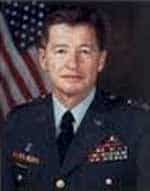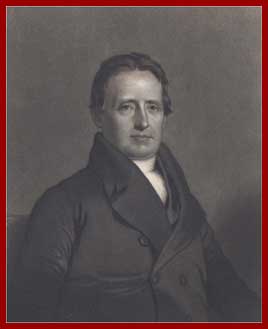A Christian Patriot Who Suffered During the American Revolution
We are more apt to recognize the New Jersey delegates like the Rev. John Witherspoon, or maybe Richard Stockton, as signers of the Declaration of Independence. But joining them was one Abraham Clark.
Born February 15, 1726 in Elizabethtown, New Jersey, his family was solid Presbyterians in their denominational affiliation. Baptized as an infant by the Rev. Jonathan Dickinson, first professor of the College of New Jersey, he grew up in the thrilling but dangerous days of increasing agitation of separation from England. With his inclination to study civil law and mathematics, he became known to his neighbors. Popular as “the poor man’s counselor,” he refused to accept any pay for his helpfulness to his neighbors. He further served them as High Sheriff of Essex County.
But it was as a member of the Continental Congress on June 21, 1776, that he became interested in the issues of liberty and justice. Penning his name to the Declaration of Independence, representing New Jersey, he states that he and his fellow signers knew that “nothing short of Almighty God can save us.”
He knew full well the cost of liberty. To a friend serving as an officer in the Jersey contingent of troops, “this seems now to be a trying season, but that indulgent Father who has hitherto preserved us will I trust appear for our help and prevent our being crushed. If otherwise, his will be done.” There is no doubt with convictions like this that he saw himself and his country safely within the sovereign providence of God.
His two sons were captured by the British and put into the prison hold of a notorious prison ship called “Jersey.” Fellow prisoners fed one of the sons by squeezing food through a key hole. Abraham Clark did not wish to make his personal suffering public, so he told no one about his family stress. When they found out about it from other sources, the American authorities contacted the British and told them that as they were treating prisoner of war Clark, so they were going to retaliate against a British officers in captivity. Only then did the brutal treatment of Clark’s sons ease up.
Abraham Clark was recognized as the member of Congress who moved that a chaplain be appointed for the Congress of the United States. And ever since then, a chaplain has been elected for that spiritual position.
But there were religious responsibilities which Abraham Clark also kept. From October 26, 1786 to 1790, Abraham Clark was a trustee for the Elizabethtown Presbyterian Church of which Pastor Caldwell was the minister. Abraham Clark died in his sixty-ninth year on September 15, 1794.
Words to live by: It was said that Abraham Clark was a Christian, a family man, a patriot, a public servant, and a gentleman. That about covers the sphere of influence which all Christians are to serve both God, the church, and our country. Once, he was offered freedom for his sons from their British captivity if . . . if he turned colors and became a Tory, or become loyal to England. He responded “no.” He was convinced, as he said to a friend in a letter in 1776, “Our fate is in the hands of an Almighty God to whom I can with pleasure confide my own. He can save us or destroy us. His counsels are fixed and cannot be disappointed and all his designs will be accomplished.” Amen, and Praise God



